Donna, a breast cancer survivor from Iowa City, IA, sits down with her husband Ken to discuss her cancer journey and how her experience gave her strength for later in life.
Kate, a family member from La Pine, OR, discusses how she helps her community support others going through cancer treatment.
Kay, a survivor from Stratton, NE, shares how her work team and family supported her through one of the biggest scares of her life.
A young brain cancer survivor from Kankakee, IL, Levi talked to the team about how his family and doctors helped him on his recovery journey.
Herman Carl, an oral cancer survivor, faces life with a fresh perspective after his cancer experience.
Now married, Marc and Debra support each other through life’s ups and downs. Their advice? Listen to your body, seek answers, and don’t face challenges alone.
Laurie Johnson was diagnosed with late-stage breast cancer in 2007 when she was around 40 years old. Despite the late-stage diagnosis, she had excellent medical care and a supportive family that helped her through treatment.
Tim Sashko recounted his cancer journey, which began on November 17, 2020, when he experienced involuntary arm movements. Initially diagnosed with a hemorrhagic brain tumor, he underwent surgery on November 19, 2020, at Evanston Hospital.
Where do you find the un-lost? There are no words. Where do you find where the true love is? Where do you find belonging back again? Where?
Keep making them laugh, just be there for them. Spend time with them and cherish every moment you have. Anything you can do to bring them some joy.
Do those checkups, do those checkups. No excuses. Don't care what you got going on. Mark it on the calendar, make sure you get there. It's very important to do those wellness checks.
I don't want to go. I still have lots of things that I would love to do. And I feel very grateful that I have had this time. I've had a wonderful life. I have no regrets.
When their kid is here with us, we have got them. We are going to do everything we can to take care of them and they can just be focused on being the parent. We will do the rest.
I think my parents did a fantastic job with it. I felt like a normal kid. I never really saw it as missing out on anything. I just saw it as this is my life. And that's okay. And it's different. That's cool.
I can grow, I can learn, I can teach. Those are the three things in life that will always get you by! And here’s the thing about life, when you get stuck, any one of those three things, it will kick you ‘til you’re unstuck, whether you want to or not.
“You need some distraction so you’re not sitting at home going “Oh, that next treatment’s coming up. I don’t wanna do this” or “The last one was horrible” or “Nothing tastes good.” Beyond that, the hard ones are the people that don’t have a lot of family. We have a few people who will sometimes meet and go and sit with them while they’re going through chemo. It’s a mental game. You just remind them, it does get better.”
“Coming to a support group –I think you can get a lot of information networking with people who have already gone down the path that you’re about to go down. Cancer education centers, the American Cancer society is really great. They have a 1-800 number even if you need to call someone to talk to someone at 3 AM they will be there to answer the phone.”
“The story, as with all of ours who have had cancer, is that, sometimes, the cancer is not the defining point. It is maybe the element that gets our story told, but, truthfully, the story is about the lives that surround us and the lives we can touch through it.
For me, the cancer brought things out about myself that I never knew, and never would have. There was a purpose, and I believe that things do happen for a purpose. And I believe that sometimes the journey at night is through a dark, horrible forest, but during the day it is a gorgeous, beautiful wooded area that has a clear lake with a reflection. Perspective is a marvelous thing.”
“It looked like they were going to be passing away at the same time, but it didn’t turn out that way. I was able to gain strength and know that this was my place. I needed to be able to help them and do the best that I could to love them, get them the medical care, and take care of them the best I could. This was to give them a fighting chance.”
“We really need to help those who can’t afford cancer treatment because cancer is very expensive and it can financially drain you if you’re not prepared for it. Which we weren’t prepared, but thank goodness I had wonderful medical coverage. Because that’s what got me through. So I was very fortunate, too, that I was able to have sick time that I had on my own that I could rely upon to be out. And I almost had enough to cover me from June of last year until March of this year.”
“Talking with fellow workers and other people in the community, towards the end of life or retirement, there are two biggest things that affect your life. One is retirement and the other is the loss of your spouse. And that hit me really hard. That’s when I hit the realization that things were as dire as they were. The cancer had progressed so rapidly through her body that it was going to be a real challenge and a good possibility that it wasn’t going to be a winning challenge, that anything was going to work for it. And that was a very difficult thing to overcome. But we did. She took the drugs well; she responded to the drugs. And six years later, we’re still here. We’re still here, and we’re here together. And that’s where I keep saying, the hope, the faith, and the love are the key factors.”
“I think I stay positive because of the philosophy that I hold. Things just get rolling when you die. Some of my good friends – two of my good golf buddies – have died in the last two years and I’d kind of like to see them again, those assholes. They’re up there playing golf every day and I’m down here. And everybody is going to die. As we all know, everybody wants to go to heaven, but nobody wants to die. So that’s a problem. At this stage of the game, I’m not as afraid of dying; I mean, that’s the least of things.”
“Sue called me at 3 o’clock in the morning and said, “I wanna go home. I wanna be with my husband.” He passed away before she did. And I said, “Well, you’ll go home. You’ll see him again someday.” Little did we know that she stopped taking her medicine and she wanted to go home. And that’s really hard, with somebody close – it just really, really hurts, you know. She mourned her husband. He had Alzheimer’s. And now she’s with him. I know they’re all together now.”
“It’s perfectly okay to sit down with a cancer patient at any age and if they feel like crying, just cry with them. On the other hand, if they want to do something to completely avoid thinking about what’s going on, do it with them. Arrange anything you can that will be joyful to them, any wishes they had – I always wish I could have done this or that – make it happen.”
“I tell my friends all the time that what I do is look through the front of the windshield; I don’t look in the rearview mirror. You know what this is: you have to see the obstacles in front of you, and you go through them; they’re speed bumps. Some are bigger potholes; some are bigger bumps. You know, you gotta slow down a little bit more, from that standpoint, but there’s no use looking in the back. What’s behind you is behind you, and then look forward.”
“I got ready to go to school, I went to say goodbye to Mom, but she wouldn’t wake up to say goodbye to me. I left for school, and couldn’t think, couldn’t focus. I knew something wasn’t right. Whatever power you’d like to say was involved, my mom knew that I needed to know, and I needed to get to say goodbye. The doctors said that she should never have woken up that day, she should’ve been gone first thing in the morning, that when she went into the coma, she should’ve been gone at that point, but when I got home from school at 10 after 3, she opened her eyes and said goodbye to me. She was gone at quarter after 3. She waited for me, to say goodbye.”
“We have always been close. My sisters and brothers and children all live close here. We have always been a close-knit family. So we got a lot of support from everybody.
Everybody was very kind to us. And when you live in a smaller community you get a lot more support because you know a lot of people. Even the doctors and nurses were kind, and then the contributions – they gave us gas money to go to Rochester. So that was a great help because it was very expensive, all those trips.”
“They don’t want to be treated like they have cancer, because it’s not something they want to identify themselves… I mean maybe I’m just speaking from a personal stance, but it’s important to realize they’re still just the same as you. And while they have all this fundraising for them, it’s for the greater cause. You don’t want to be singled out as like the bald kid and all that other stuff.”
“Be positive, because your mind is really powerful and it can help you. I also really believe that Eastern medicine is just as important as Western and all the things like acupuncture and massage and yoga and meditation are super important because they help your spirit as well as your body. And I think it helps you stay strong because you need to eat really well and work out and you know, stay as healthy as you can. I think…a lot of those things help with the side effects of the western medicine to not be as bad.”
“Cancer doesn’t discriminate between religions, sexual orientation, anything like that. The one thing none of us can afford to do is to hang on to any preconceived prejudices. You love everybody for who they are and it doesn’t matter, because we all share the fear of an uncertain future. So it brings out the realness in people. It brings out the thing that is most important to people. You don’t have the luxury of the petty thoughts. In that way, some people are actually blessed to have cancer come into their lives because they can cut through and can learn some lessons as they search deep inside themselves.”
“I am fortunate, it is a funny thing to say that you are fortunate when you have cancer but I mean I am fortunate I have seen people who are much worse off than I am, much sicker than I am. And I have seen people who are much younger than me much sicker than me, which I mean is just really a terrible thing to see.”
“I think my husband [was the best support] because he was there all the time. We went in for consultation with the doctor after surgery. The doctor had asked Ron, “How do you feel about this?” And Ron said, “It wasn’t her fault. It’s no different than her losing an arm or a leg.” And the doctor said, “You two will be fine. You’d be surprised how many husbands will divorce their wives because they lost a breast.” This really surprised me because I thought: it can’t be love. I mean, how can you adore a part of the body like that, you know? So I felt very secure with my marriage.”
“When you go through something like this….the strength at the beginning you think I can’t do this. And then as you do you think wow and you become a stronger person and through that. And also sometimes I think that humor and just trying to find something light and something funny out of something that is just tragic. I think the one Christmas we sent out Christmas cards and we all put on red bandannas, all five of us, by our Christmas tree (because she had no hair) and so that was. And we got more people that said that was such a neat thing. Or pictures of my kids putting my wig on, or just stuff like that, just little things like that. You need them, you need to find them some humor and something lighter in the situation. It helps.”
“In the Marine Corps, we’re taught this. When the enemy attacks, you don’t let the enemy attack. You assault the enemy. You press into them. So we got as much information as we could. He started eating right, started getting himself squared away and everything like that. He went through a nasty bout of chemo, lost a lot of weight. My brother…God bless him. My brother was a very vain man. He had long hair and he lost all of it. Well, he went into remission for a little while, got through the chemo. He just kept fighting.”
“So I have already been the caregiver, I’ve been the recipient of cancer and I’ve been re-diagnosed with cancer. I understand the stress of being a caregiver, especially when you go from having a spouse to being a caregiver for that spouse. You know you’re a caregiver for your children, you’re a caregiver for your elderly parents; you don’t expect being a caregiver for your spouse, you expect to work together.”
“The day I was diagnosed, I had never felt better in my whole life. And then to be told you have cancer, you just spend a while just even comprehending what that means. In the 6 years, as merle said it, it really is a journey. It’s not journey you go through by yourself, the caregiver role is incredibly important. So it’s a journey that impacts and affects the whole family.”
“I think it’s very important to have things to look forward to. I really had a lot to look forward to, and I think it really helped. I live in a retirement center now, and when I watched the people there and the ones who were active were the ones who had something to do, some purpose for their life. I really think they need a purpose. If they have a purpose, they’re much more outgoing and active and everything. Right now, I travel, I travel a lot.”
“I think the hardest part for me of having her gone is that she is not here to enjoy my children. My husband and I feel really sad every day that she is not here. My mom used to love hot fudge sundaes, so as a memorial for her and because all of her friends were in Chicago and her funeral was here, I had a big party for her in Chicago at the North Shore Hilton up in the top, because she used to like it there. It’s really easy for all her friends to get to and we had ice cream sundaes. And everyone got to talk. And there were 100 people there… It was a nice goodbye for her.”
“I can say the best thing that I did was, my wife started a care pages blog for me. I update my blog everyday on what goes on. I've got over 150 people that follow it every day. They can write messages back to me on the blog so I don't get the 50 phone calls a day anymore. … When you're feeling down and out, or lack of energy cause of your chemo, that's a huge emotional tool, a great tool so I recommend that to anybody, start a care pages blog.”
“I can say the best thing that I did was, my wife started a care pages blog for me. I update my blog everyday on what goes on. I've got over 150 people that follow it every day. They can write messages back to me on the blog so I don't get the 50 phone calls a day anymore. … When you're feeling down and out, or lack of energy cause of your chemo, that's a huge emotional tool, a great tool so I recommend that to anybody, start a care pages blog.”
“A lot of people tell me I’m lucky. But I think that’s a shame that people have that mindset that if you survive cancer, you’re lucky. We need to change that perception. Let’s make it to where a cancer diagnosis isn’t such a dire thing. We need to help more people get better treatments, so that someday if someone says, ‘I had cancer but I don’t anymore,’ it’s going to be just as common as someone saying, ‘I broke my leg when I was a kid.’ One day I hope we see that in the future. Maybe not in my lifetime, but hopefully in my daughter’s.”
“You know, my daughter, I'm very concerned for her. Her doctor would not give her a mammogram until she was 40. I think this is something that needs to stop. People younger than you girls are coming down with breast cancer or some form of cancer. And they will find a cure to this, I'm sure they will. But until then, I cannot stress a mammogram enough. The doctor that found mine was very young. After I went through my surgeries, I went back and I looked at him and said, “thank you.” He said, “you're the first one that has ever said thank you.” So I felt good, I felt good about that. But your family doctor, you know, they are just that - family doctors. They are not specialists and I can't stress enough to look for a breast cancer specialist.”
“She was not afraid, but still didn't want to die. I don’t think anybody does. Still, she fought until the last minute. In fact, most days she’d say: I’m ready to die, but not today… but she was certain that there was something more. And I’ve said to many people that [as a pastor] I have buried so many wonderful people, that I have to believe that they haven’t just ceased to be; that their spirits are somewhere.”
“It just hits a spot. Our family has had vast experience with the dreaded disease… I hear the word cancer and I cringe. Every time we’ve been hit with one of these things it’s been out of the blue. I’ve been an EMT ... and I’ve been at the scene of many fatal accidents. I don’t know how many people expected someone in their life to leave that morning and never come back.”
“I am a twice survivor of cancer... November 1999 I was diagnosed with Hodgkin’s Lymphoma. I was the first recorded patient that has an Hodgkin’s Lymphoma started in brain tumor. I ended up going to 6 months of radiation and they only gave me about a 20% chance of living. After 5 years, they found that the cancer came back. So in January 2006, it came back and it was pretty aggressive. I did 15 months of chemotherapy and I was not doing any good. I was on the hardest chemo treatment the hospital had.”
“You’re changed. The thing is, when you’re told you have cancer, you don’t have any choice in the matter. You have to accept it. You can’t say, “Nah, I don’t think I want cancer.” You’re told you have it and you just have to accept it and you have to start moving. Things that were important to me before diagnosis, I don’t even really care about them. In the overall scheme of things it’s not that big of a deal. It helps you to re-prioritize your life.”
“When working with cancer patients at the medical clinic, you’re definitely forming relationships with them. You see them all the time, so you can start to interact with them on a much deeper level. You’re sharing something very personal with them and I consider that an opportunity to be encouraging and to help spread cheer because what they are doing is hard. My job is to be the best friend to them that I can be.”
“I don’t want to say [cancer] was a good thing, but honestly I think cancer was the best thing that happened to me in my life. Now I have so many dreams and they’re so much bigger than [the dreams] I had before. I’d like to do a lot of things. I want to travel, and I want to write a book and I want to run another marathon. I have a bucket list, I want to fulfill it. I think that when you beat something like cancer, then it propels you forward and it makes you think that you can do anything… I’m just grateful for everything and for everyday… I think it’s changed me a lot, but that’s just a little glimmer.”
“I went through that, and it was painful. I ended up wearing a colostomy pouch, and they said that it was bad enough to wear, that they can’t turn around and get rid of it, so I have to wear it the rest of my life. At that time, I felt bad for myself that this happened. It was a change in my life, to feel strange of what I have to go through. I felt so bad that I wanted to leave this world. It wasn’t too long, a year and a half or so after that, I had to have open heart surgery, where I ended up having to have open heart surgery, which made it even worse. I was feeling so bad, that I didn’t want to be here anymore. I felt like this isn’t… it’s time for me to leave. I was praying in that way. That’s when I asked the lord, and said, “I’m ready.””
“I grew up knowing I wanted to make money, and that was it. So I went to school to be an accountant, and I was like I don’t really care, I just want to move out, make some money. But after my Dad got diagnosed with cancer, it really made me think about my values, and my big value is family now. I changed my major, I want to be a grief counselor, to help cancer patients. That’s how it’s really affected my life. I’m going from a six figure job, to maybe only like 50,000 a year, but it makes me happy knowing I can help people like my father, and other people who don’t have that support system. Cancer’s affected me by giving me a positive outlook to help the community.”
“There was so much good that came from cancer. We would sit around the table at night after Marissa was diagnosed with cancer and talked about the good things that happened in our life because of cancer. Like the people that were amazing or the way that we saw generosity, just overflowing towards our family. It was amazing to see that generated towards you. People that you didn't know, did know forever, or people that were poor giving you their last amount of money because they thought that you might need it. It was just an amazing, incredible adventure.”
“I was forced to grow up earlier than I normally would have. When you were confronted with situation like that, it made you look at the situation from an adult prospective, rather than that of 12 year old boy. I did the only thing I could, which was to be there for my mom. You do gain a stronger appreciation for life, what it means to have a family when one of your family members got something like that. Be there for them and be there as much as you can. It would be really easy to deny that it is happening, to ignore the situation. But you can’t, the person suffering is going to need you. Even if you are young, you can still help and you can make it easier for the person going through it, and they are going to need you to do that.”
“Fight, don’t let it get you. Fight. I had grandchildren born the whole 10 years, I had something to fight for, I had new babies, my daughter’s got seven kids and the only reason she has 7 is because she had them all during the whole 10 years, she was pregnant the whole time pretty much. Fight. Don’t just let it go. Even though I am where I am, I’m alive. And I have done a lot in the last 13 years that have helped other people. Some people just figure they have cancer and that’s it. Fight. Don’t let it get ya’. They’re curing an awful lot of it these days.”
“At one point I did think, why me? What did I do? But it’s nothing that you’ve done: it’s just something that happens. But I do think that your attitude, your outlook on things, has a tremendous effect on your recovery. I think it’s so easy to feel bad for yourself, but you have to look beyond that. But I really don’t think God is finished with me yet. I still think there are things He has in mind for me that He wants me to do. I don’t feel that my life is over… I’m happy to be getting older, which means I’m still here.”
“Through different support group situations, it’s amazing how, once you have cancer, you start meeting people that have cancer. After having cancer in the family, you become aware that we’re a community, and we need to support each other. We need community. Our American culture tells us that we can be an island to ourselves, we’re strong, we can survive, we can do it on our own. I don’t believe that’s the way God intended us to be, and I don’t think that is a true statement. I think the truth is, we are weak. We are frail. We do struggle. In these kinds of times, we need each other. Be with your friends, be with your family.”
“When she got down to 86 pounds, I really thought she was going to die. But she didn’t. She went from being paralyzed from the waist down and having to be wheelchair bound, and having to catheterize herself, to now she runs regularly, and she got married last September. To me, it’s a miracle. Like I said, when I was in medical school, everyone died from Ewing Sarcoma. Nobody survived. That was a resurrection for me of my faith, and now there are routinely people that survive from Ewing sarcoma. As a physician, I realized that a lot of things have changed.”
“Be a little bit more optimistic than you think you need to be. Cancer is a terrible diagnosis. To hear that you have cancer is really quite disturbing. My wife personally told me that I had cancer. She’s a physiologist and had my tests rushed. At the time of my diagnosis, approximately two out of three men diagnosed under age 45 died within five years, so to hear from your wife that you have cancer and knowing that your statistical odds being a two out of three death rate over five years is quite disturbing, so I feel very fortunate to be here.”
“It’s taught me to take one day at a time and to lower my expectations. I shouldn’t expect people to treat me differently because I had cancer. It affects everybody. Even if you don’t have cancer yourself, you know people who have it or you know people whose family is going through this. You just take everything one day at a time. You don’t think about what’s going to happen in the future.”
“There’s a lot of things I think that the American Cancer Society is doing, and providing to people all over the nation, you know. And myself, going to Washington D.C., during the celebration on the hill, that event was to get our legislators in Washington DC to support all American Cancer Society’s efforts. We got their signatures, and I was happy about that. That was a goal that we met, getting their signatures, and their promise to help. I will do anything I can.”
“Everybody hears the word “cancer” and they are immediately scared. They immediately think they are going to die. I didn’t have those feelings, but everyone around me had those feelings and those thoughts. I felt like I had to be the strong one and the one that had to hold everyone together during that time. We didn’t have any history of cancer in the family; I was the first member in my entire extended family to have any form of cancer. It brought my family together and raised awareness, especially through my family for testicular cancer.”
“When I first got the news it took the wind out of my sails but it makes you look inside and re-evaluate yourself and what you are looking to get out of life. They give me one year to live if I did nothing but I want more than one year. Now I’m looking at my life as a lifetime. I’m hoping to get another 20 at least.”
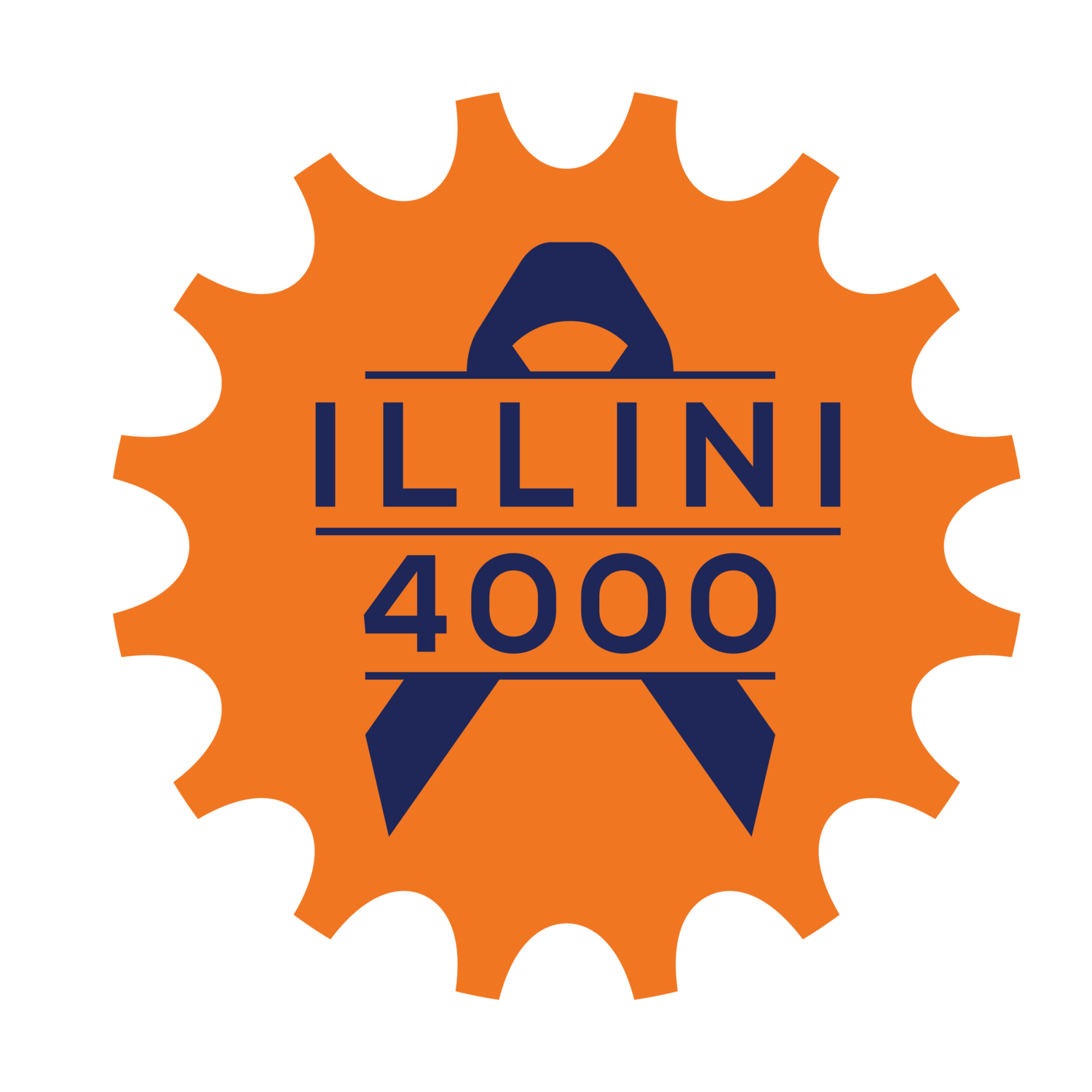
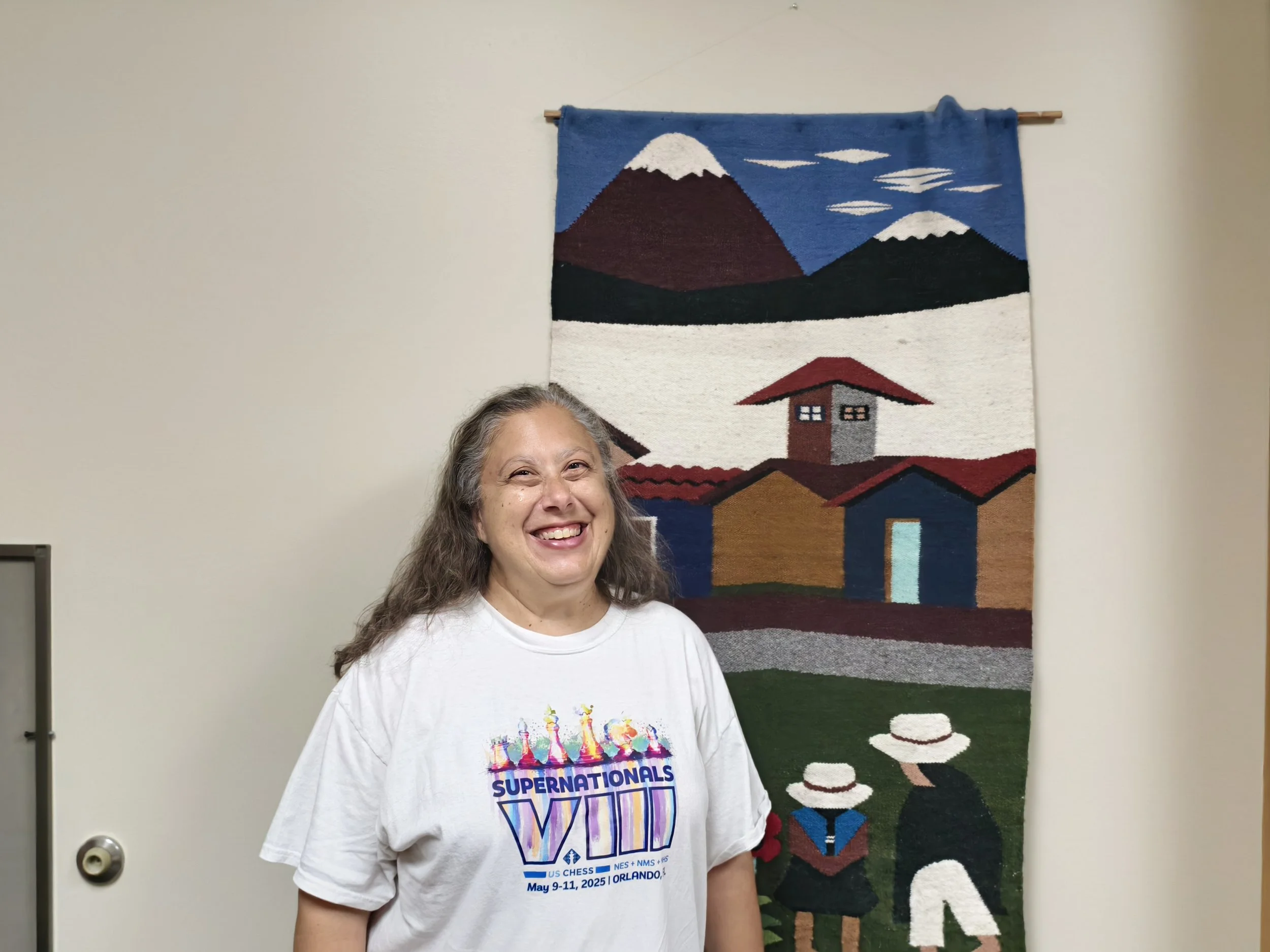

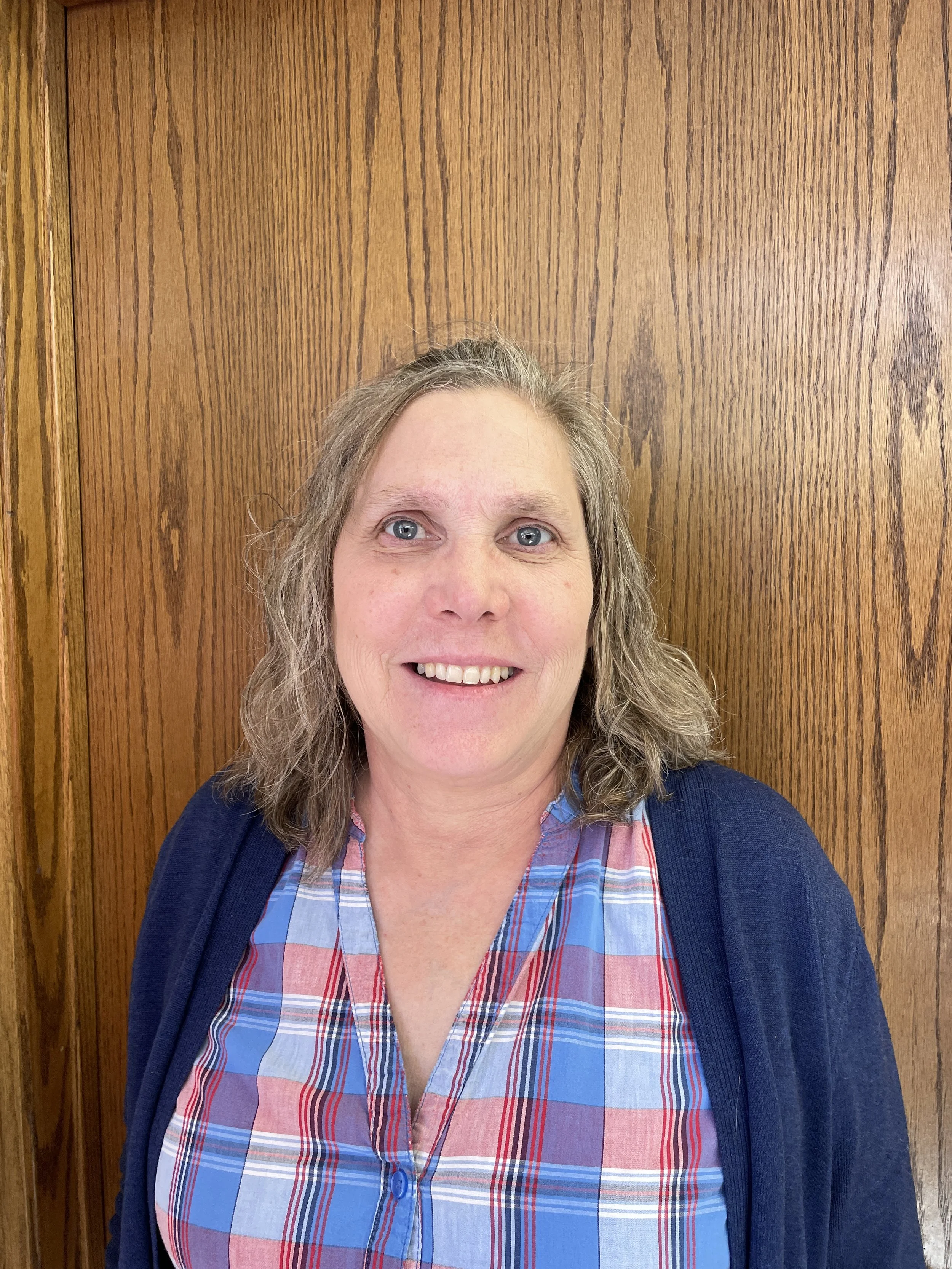


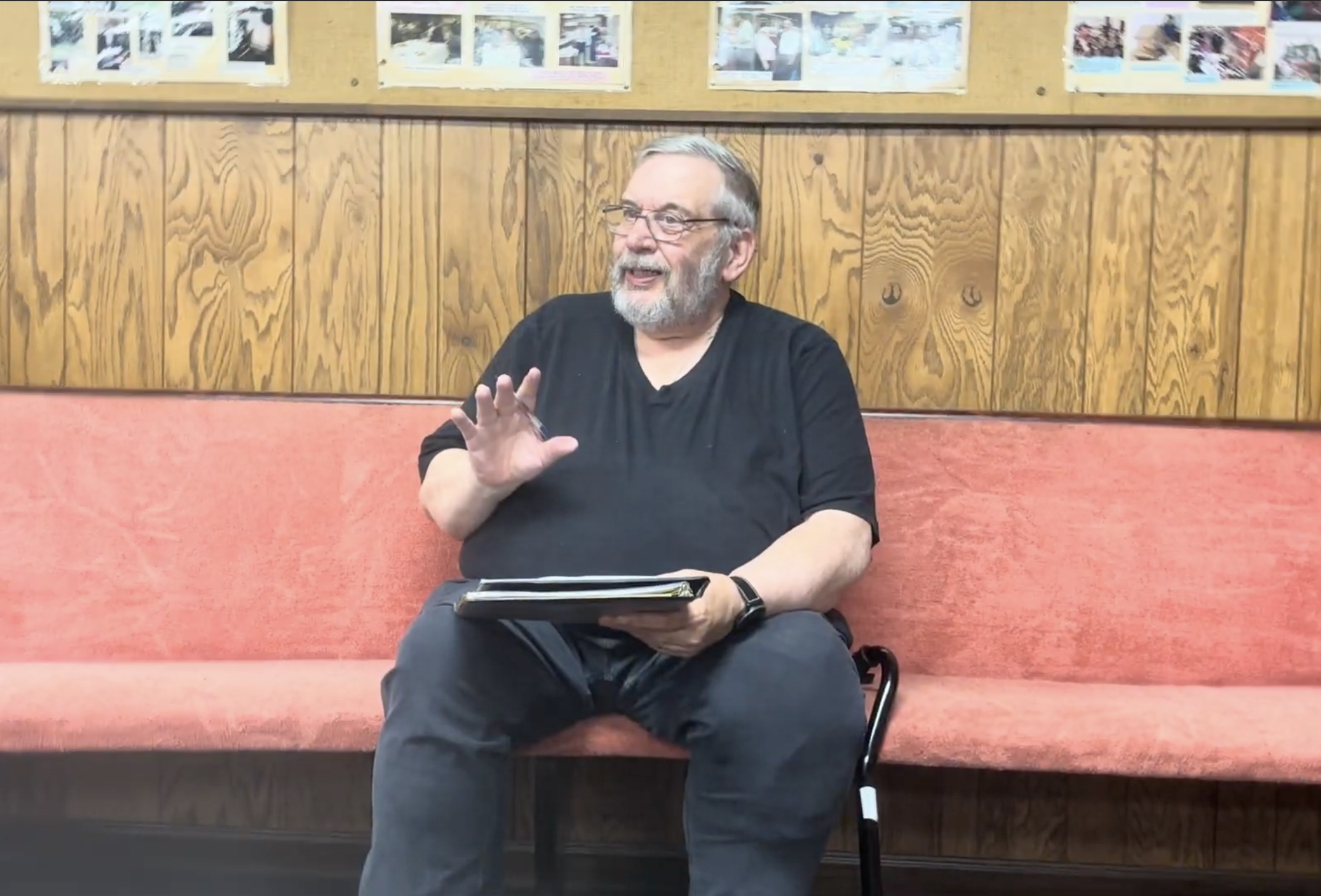







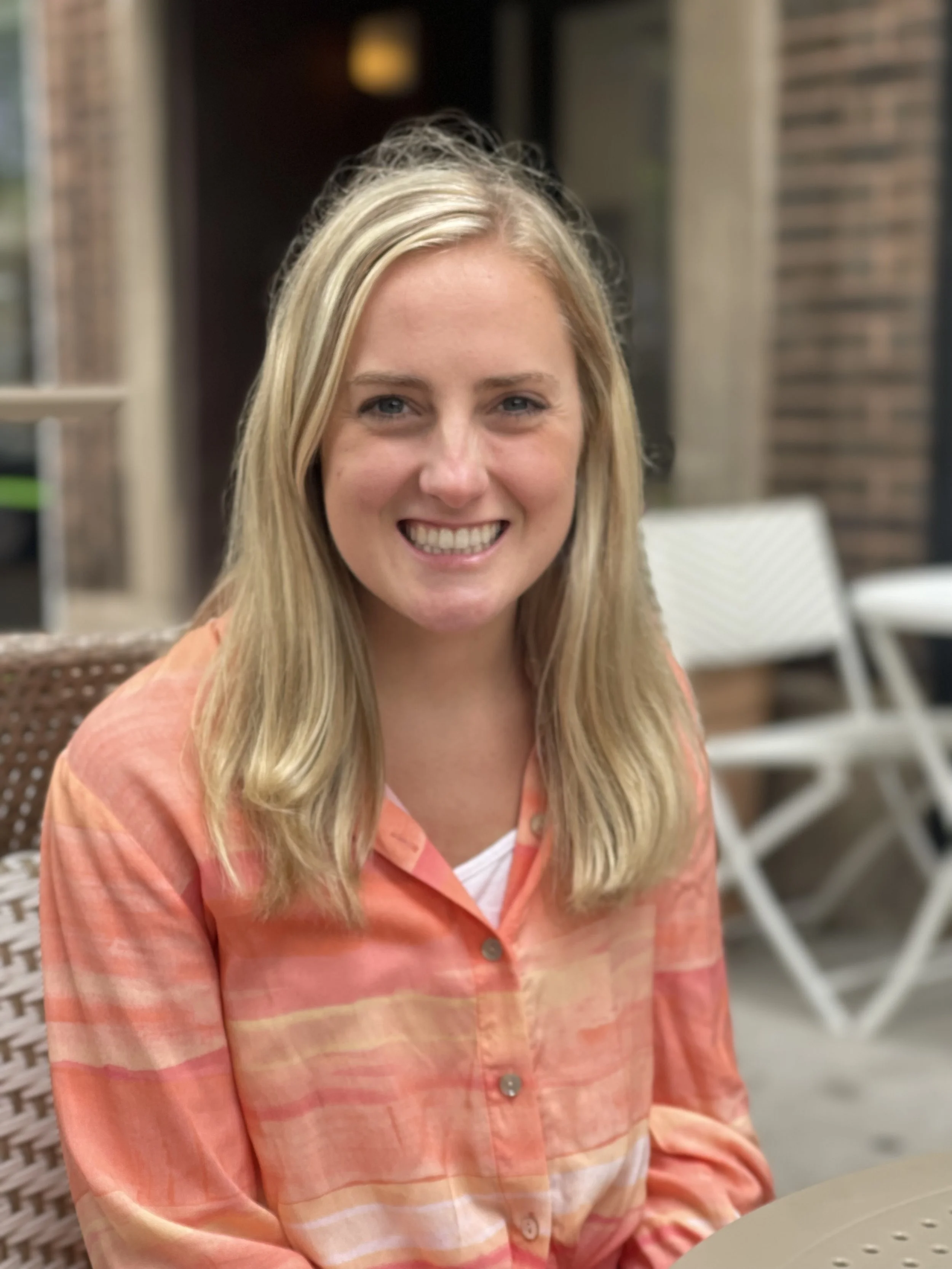

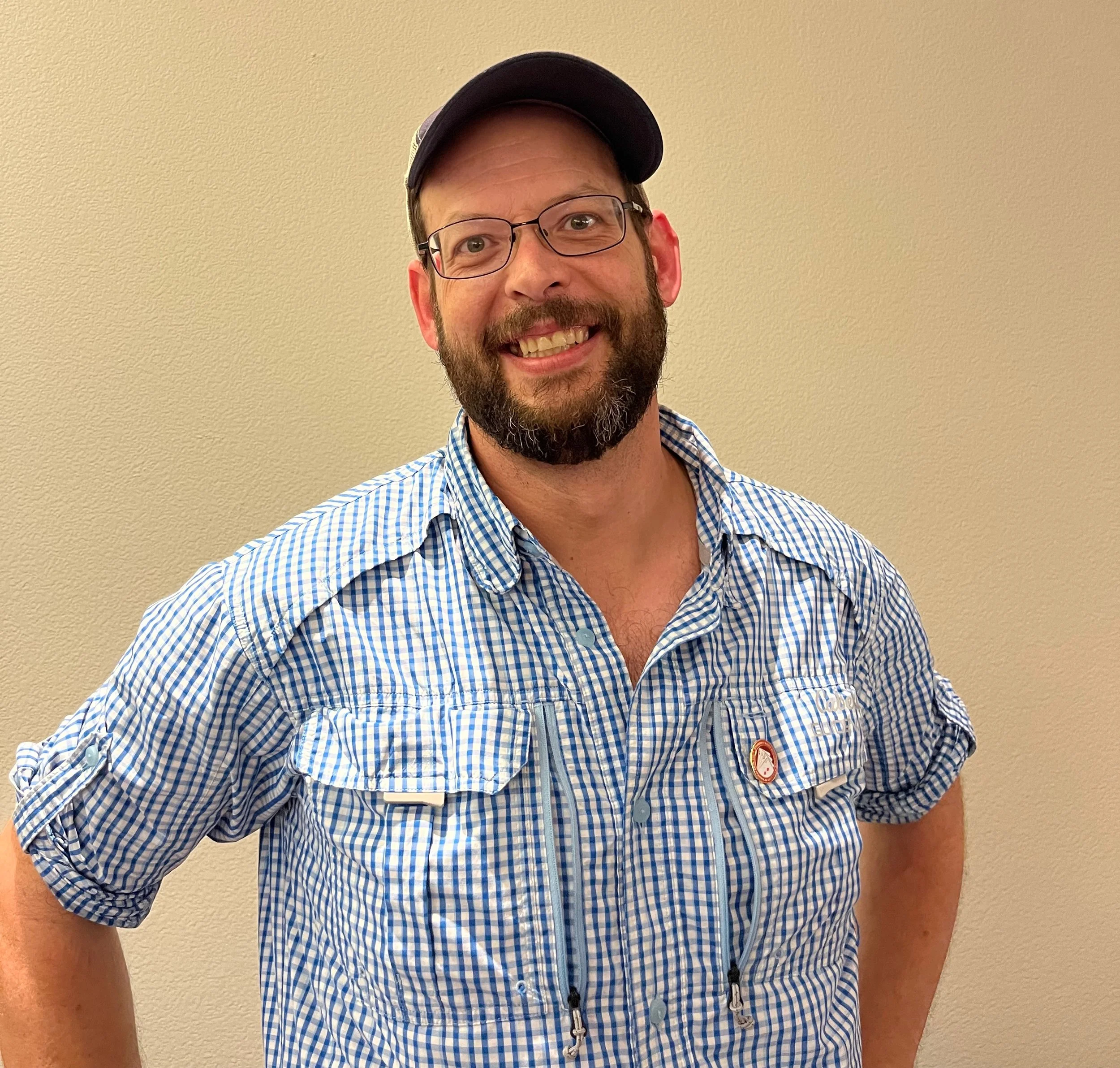



















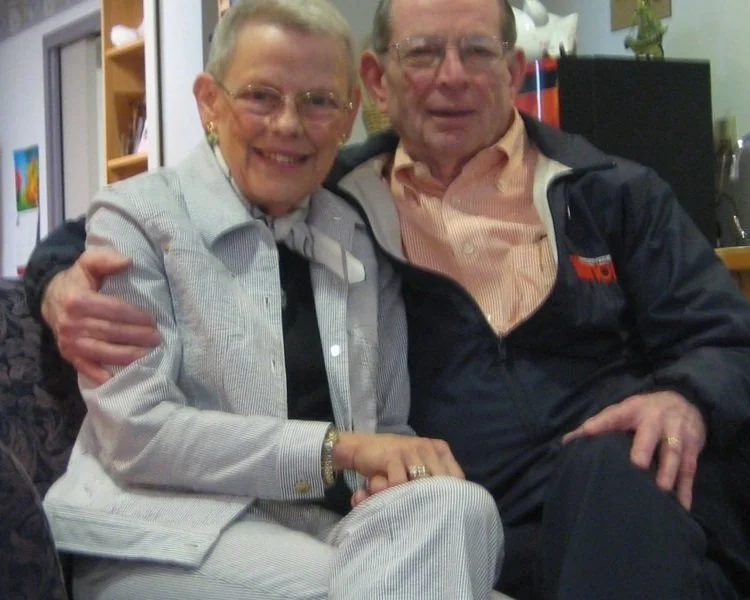


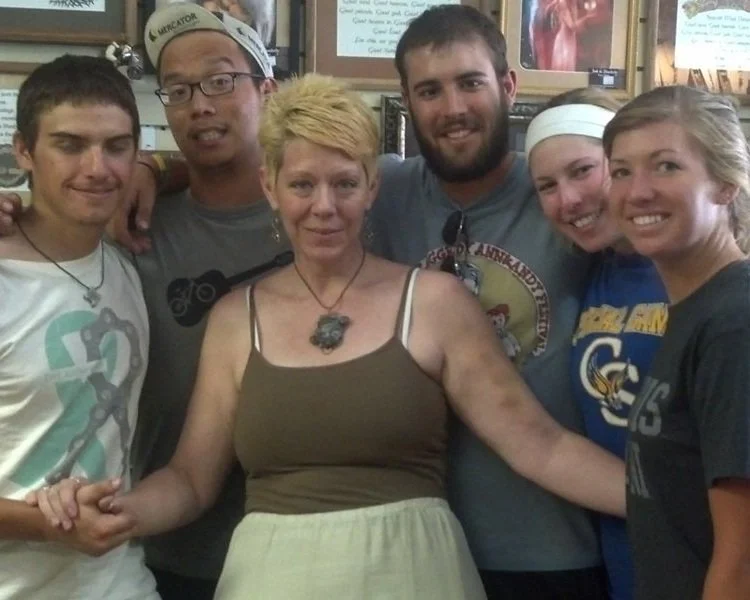

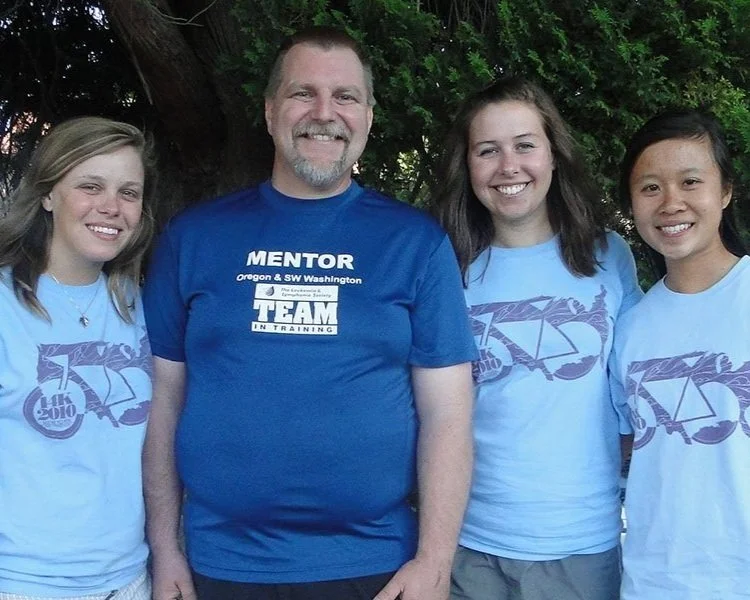





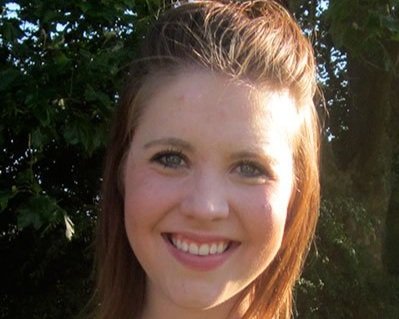




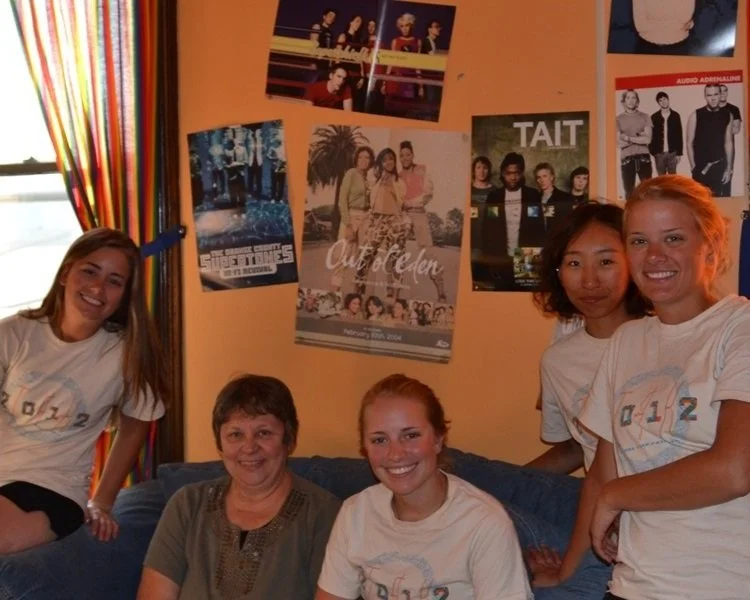







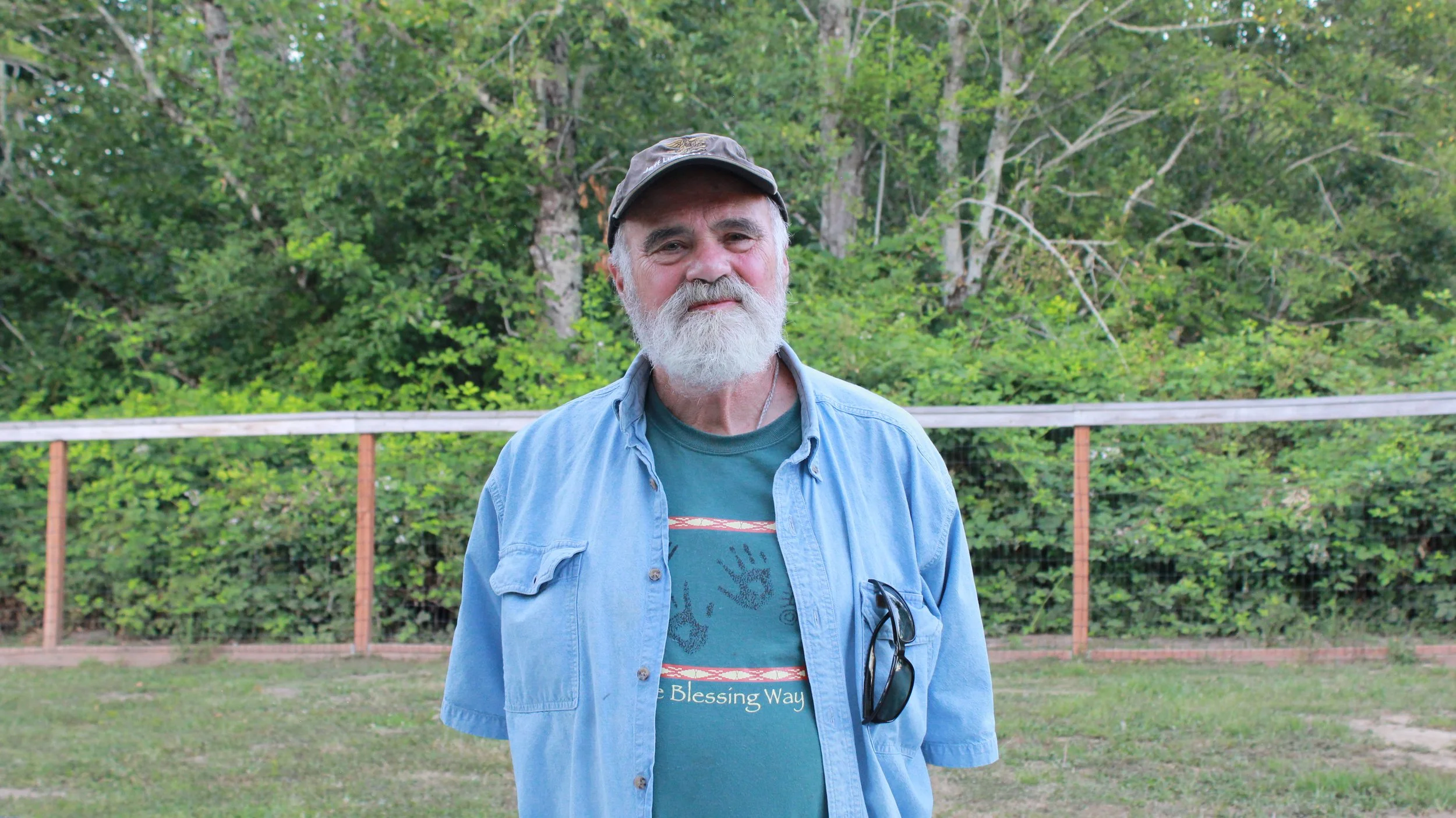
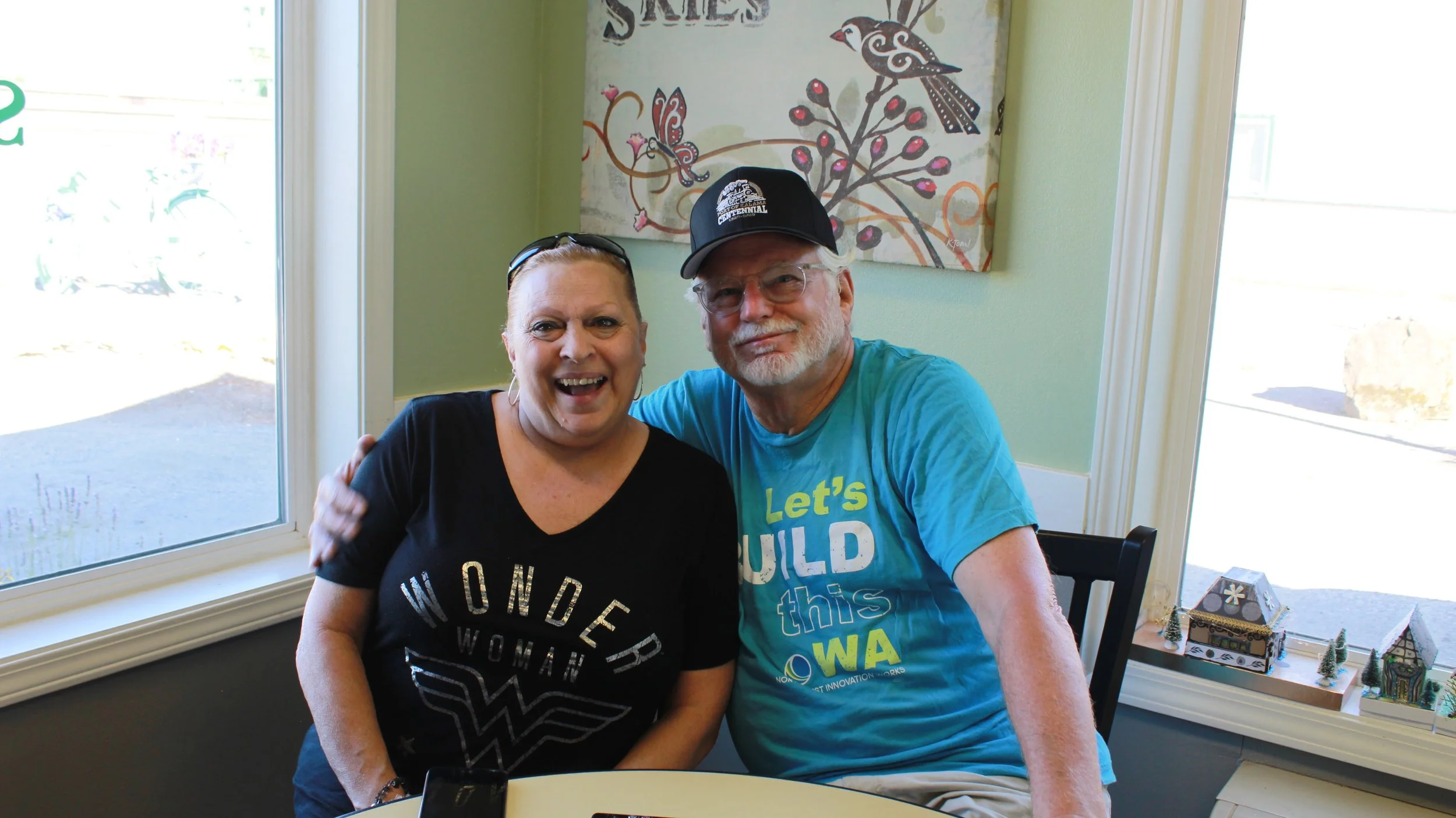
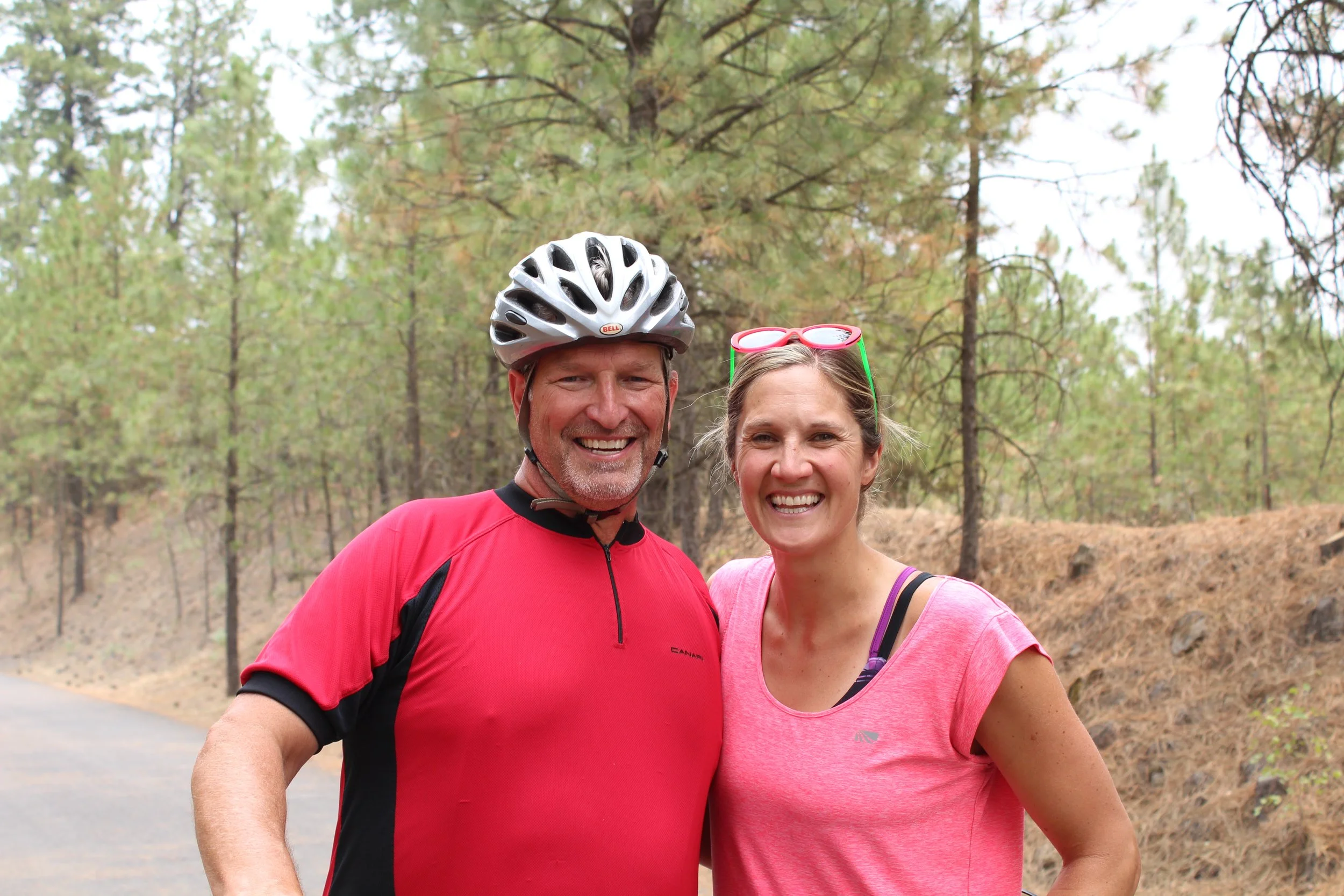




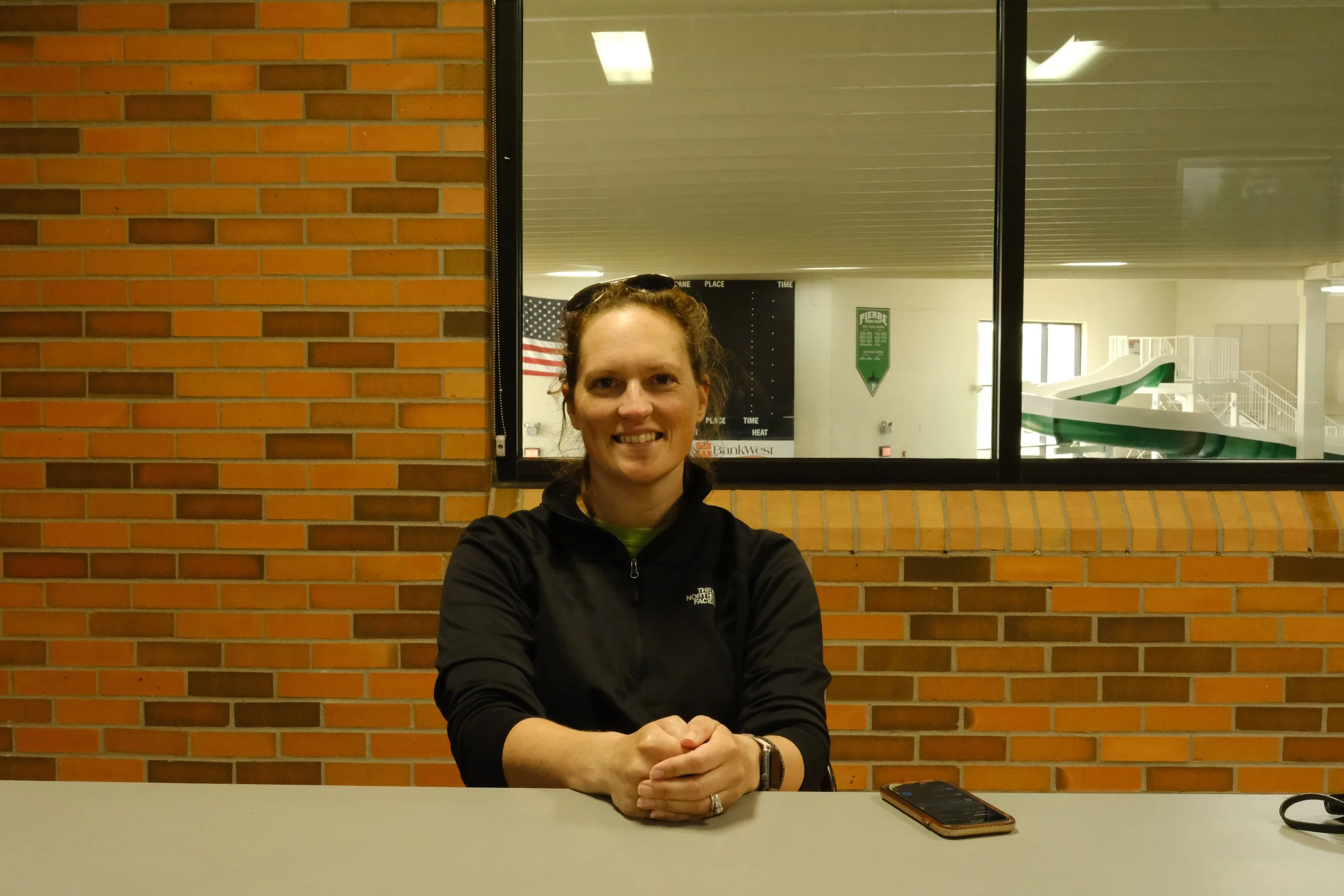
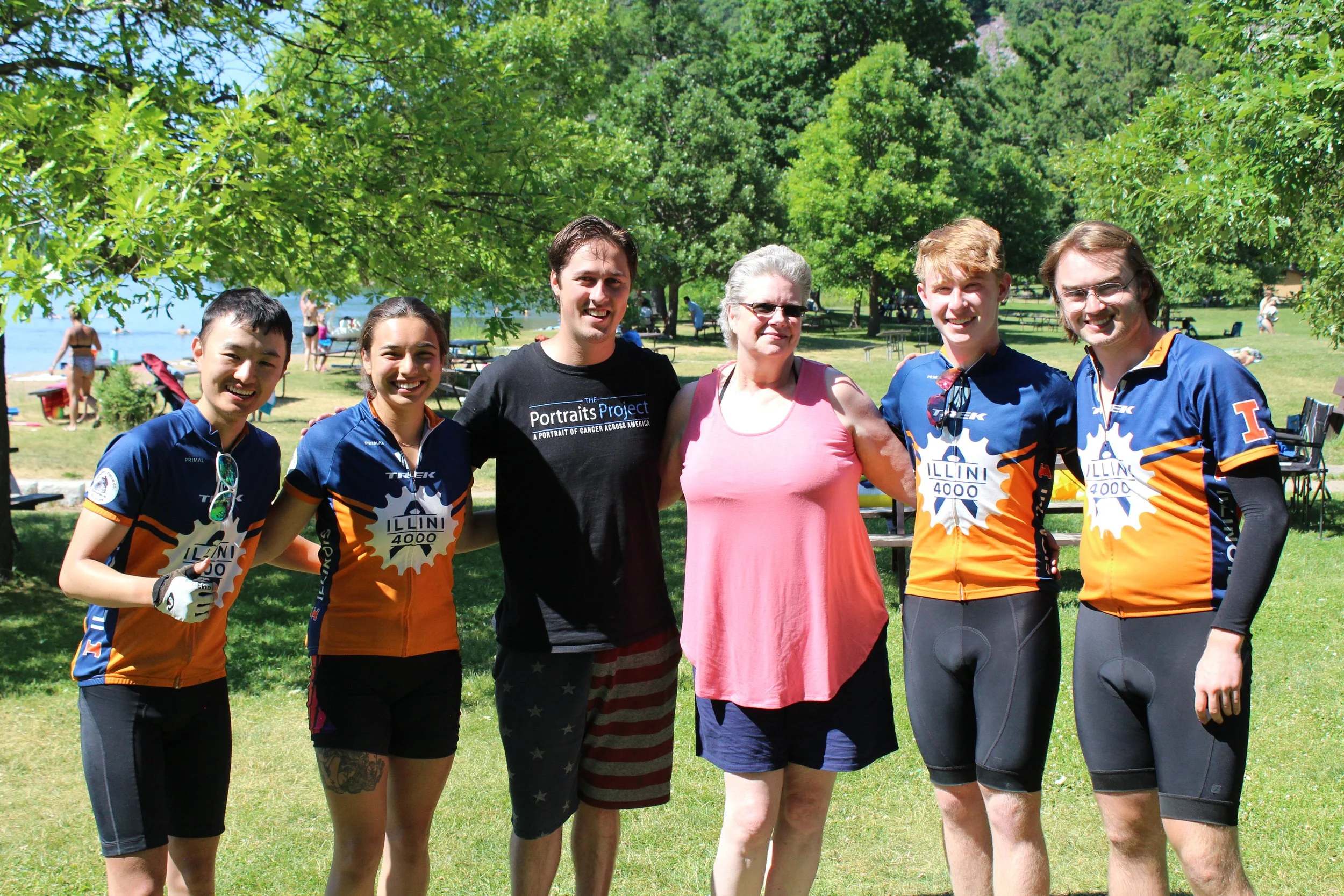
Veronica, an Illinois native, shares the story of her mother, a breast cancer survivor. Veronica pays homage to her mother by discussing how she was always there for her children, even during some of her most difficult times.